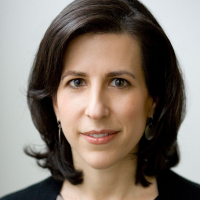Skills for the Future in MENA's Changing Workforce
The MENA region is suffering from an acute employment crisis caused by converging forces of slow, asymmetrical economic growth and outdated education and skills development systems. The crisis, affecting the region's youth most heavily, is a major factor driving unrest and protests. Furthermore, the COVID-19 pandemic threatens to amplify the problem by driving unemployment even higher, pushing people toward informal employment, and slamming the door shut on women in the workforce. However, despite deep social and economic challenges, the region is a growing investment hub, ripe with opportunities for new firms specializing in emerging technologies. Around the world, countries are facing high demand for new skills to take advantage of the rise of new industries. Will MENA be able to capitalize on digitization and the skill's transformation in order to bounce back from the pandemic? How can the private sector play a role in re-skilling and up-skilling the workforce? Our panel, co-hosted with Localized, will explore the issues of investment, emerging technology, education networks, and skills that are key to understanding the economic transformation in MENA.
Speaker Quotes
Aref Boualwan
“As I’ve said, the biggest problem in innovation in the Middle East is the lack of industries that will bridge the gap and provide domain knowledge. You find brilliant ideas, brilliant engineers doing research, or IT people, but they lack the domain knowledge [...]. You have the domain knowledge gap. So marrying [workers and industries] with this collaboration strategy, I think that would excel.”
Manuel Langendorf
“There is a need really for the government and the private sector to operate more. The private sector knows better than anyone what the skills are that are lacking. For example, what happens is many people graduate from university, have, sometimes, multiple degrees, but still there is a mismatch between the job market and what is being produced in the education system. To start with, we really need more cooperation… have the private sector involved in designing curriculums, leading workshops.”
Ronit Avni
"The younger generation needs role models. Right now the examples of esteemed professions are doctors and engineers; for this generation we need proximate role models. If you know it’s possible you will reach for it; if you don’t even know it’s there, you will never try."
Speakers


Introduction

Moderator

Hosted By

Middle East Program
The Wilson Center’s Middle East Program serves as a crucial resource for the policymaking community and beyond, providing analyses and research that helps inform US foreign policymaking, stimulates public debate, and expands knowledge about issues in the wider Middle East and North Africa (MENA) region. Read more


The MENA Workforce Development Initiative
The Middle East and North Africa Workforce Development Initiative (MENA-WDI) aims to assess both current and projected challenges facing the region in developing the workforce and the implications for peace and stability. Read more

